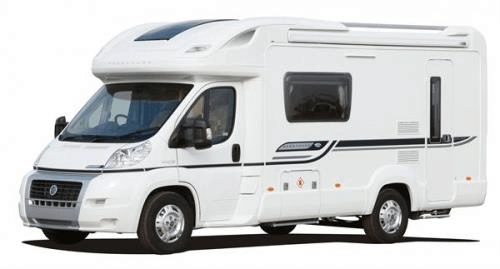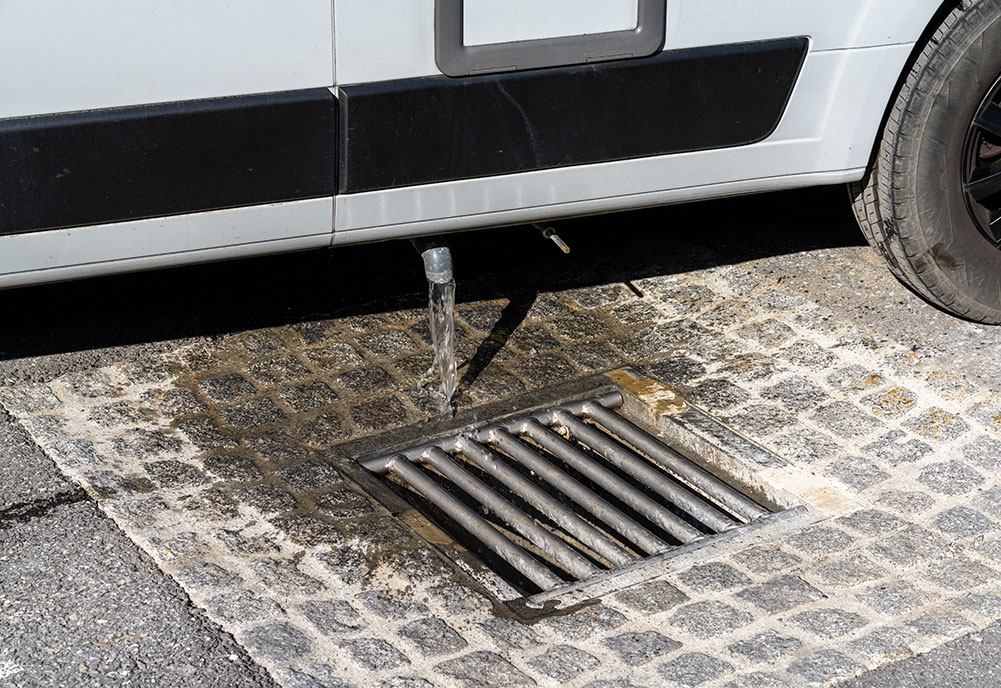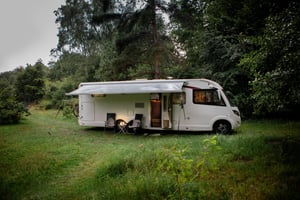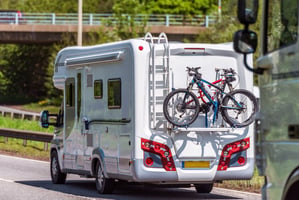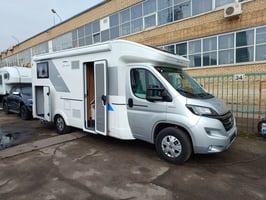What is wild camping? Well, it’s when you set up camp, away from a campsite, ideally somewhere...
Let’s be honest, whilst travelling around the country in a motorhome is a very exciting thing to be doing, there are a few necessities that need to be dealt with that aren’t the most pleasant of subjects, including what to do about disposing of grey water. As vanlife gains in popularity, the challenges surrounding getting rid of grey water from our motorhomes are becoming more apparent, as it seems also are the complaints from the wider community. Let’s have a look at some of the issues, and also discuss what we both should - and could - be doing to make grey water management a bit easier for all.
Ok - so what exactly is grey water?
Grey water is the wastewater generated from activities like washing dishes and showering. It is relatively harmless, but obviously it depends on what chemicals you are also using in the water, for example washing-up liquid, shampoo, toothpaste and potentially cleaning products, as they are all contaminants. If it’s washing-up water, it may also contain some particles of food.
Grey water is different to the waste in your toilet, which is known as black water and that needs to be disposed of separately at a black water disposal point.
It does sound relatively harmless. So what’s the problem, in relation to motorhomes?
Well, where exactly do you put it, is generally the answer to that question. Firstly, it poses a unique challenge in the confined spaces of motorhomes as it needs to be stored, ideally not for too long, and then the tank needs to be emptied. Secondly, it needs to be emptied in a suitable place, which often requires a delicate balance between environmental responsibility and user convenience, and motorhome users can struggle to find suitable emptying points, especially if they are travelling off the beaten track.
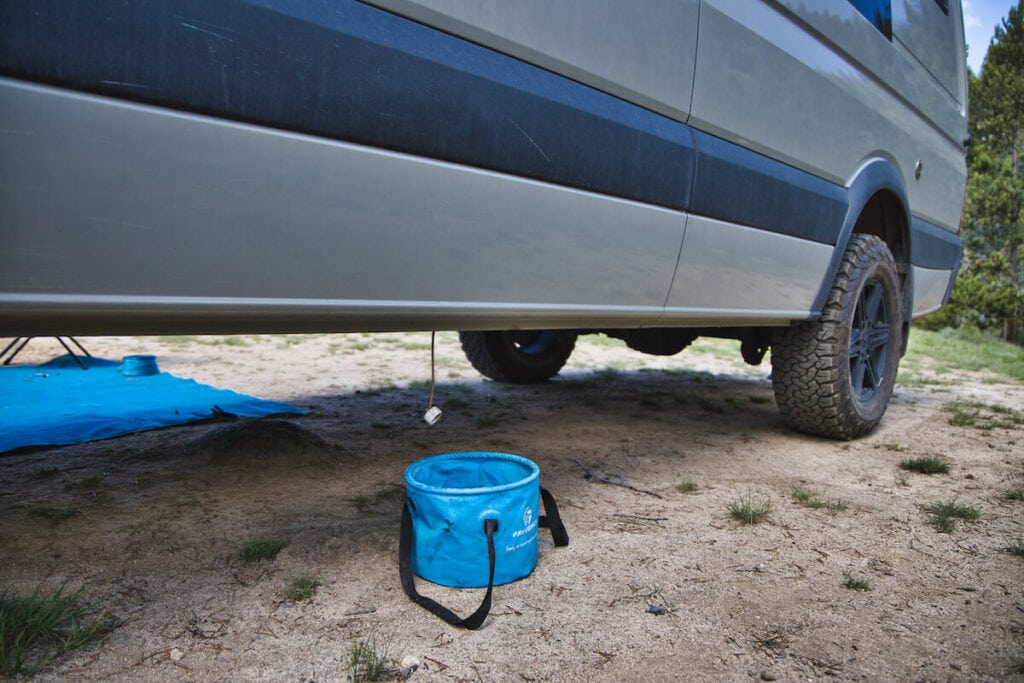
Why does it get such a bad rap?
One of the main issues seems to be the lack of consistent information governing grey water disposal. Motorhome owners often find themselves navigating a maze of conflicting rules, with some areas allowing discharge in designated places, with others imposing stricter restrictions. Technically, grey water shouldn’t be put down a storm drain, as it then enters the water courses and can pollute the environment, but people still do it, and have been fined for doing so. Whether its laziness, being unaware or a lack of suitable facilities, the drain problem exists - it’s happening, and the locals are often not happy, which doesn’t help with any potential grievances about motorhome owners in general.
Many people in the wider community are likely unaware of what grey water actually is, and if you think about it, popping outside to open up a tap of a suspicious-looking substance into a lay-by or parking area and then driving off probably does look bad. And let’s face it - anyone unaware and watching probably thinks it’s the waste coming from your toilet, so even you saying in a loud voice for all to hear, “Darling, I’m just going to empty the dish water, which is definitely not in any way connected to the toilet water!” is probably not going to suffice.
There are places to take it, such as motorhome service points and campsite disposal areas, but people aren’t always staying on campsites. So if you are parked round the back of McDonalds for the night, for example, what are you going to do? Likely, some of your grey water may end up in the location where it was produced. Unfortunately, this may put the people watching you from their cars right off their cheeseburgers…
There are some legitimate concerns about the contents of grey water. It can be slippery if it stays on the road - for example, if it’s got things in it such as washing- up liquid. It can be a pollutant, if it ends up heading straight into the water courses and most roadside drains are meant for rainwater only. However, you could argue that people wash their cars and the soapy, dirty, chemical-laden water goes down those very same drains, doesn’t it. Hence the somewhat grey area concerning grey water disposal…
Ultimately, to be doing the right thing, you need to be disposing of any grey water into the correct disposal point. Have a look at the CAMPRA - Campaign for Real Aires UK website, as they have a map of disposal places and service points which you might find useful.
If you really get stuck and have to empty the tank, it’s probably best to put it down the drain rather than spread it all over the road. Remove as much fat, grease and food from plates and cooking utensils as you can before washing them. It’s also best to do it in one place, so don’t open the tap as you drive along. And - this is important - never put your grey water in ponds, as it encourages the growth of algae which can cause the pond to deoxygenate and directly affect the pond life living in it.
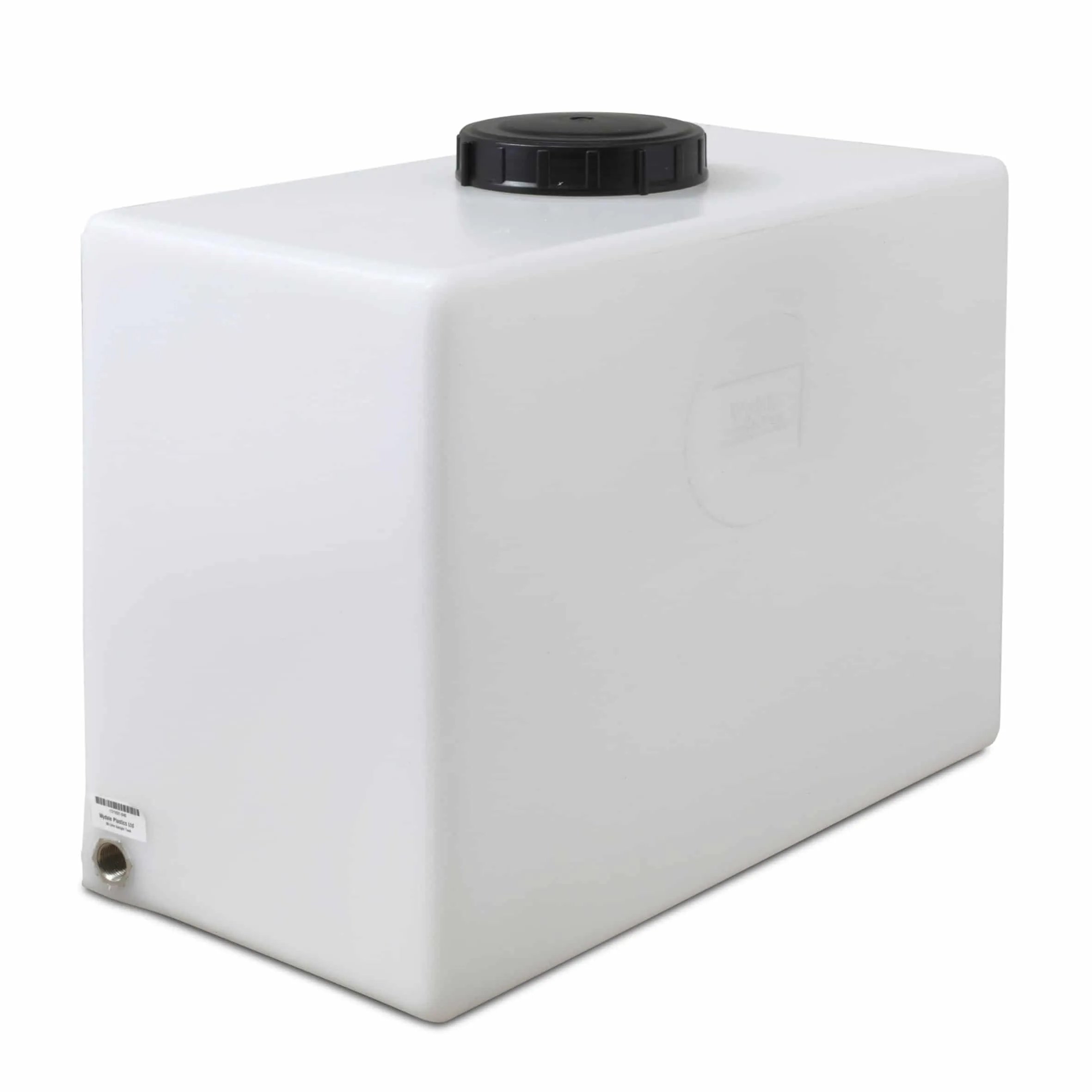
What more can we do about grey water disposal issues?
Ideally, we’d all be able to transform our grey water into reusable water via filtration systems onboard, and hopefully that’s the way it’s heading, as these items are now available to buy. These systems aim to treat grey water on-the-go, transforming it into reusable water for non-drinking purposes, which should alleviate the strain on local ecosystems.
It’s clear that we need greater awareness, both for motorhome users and for the wider community, and for all motorhome users to take responsibility in being, well, responsible. Grey water issues are not just about perception and understanding – they're about fostering a sense of responsibility within the motorhome community. It’s about promoting awareness regarding sustainable water practices and proper disposal methods, and the need for respecting local rules is essential for minimising the collective impact on the environment.
It would also help if there were clearer and more consistent guidelines across the country on its disposal. We need to strike a balance between environmental preservation and the practical needs of motorhome living, and disposal certainly needs to be made easier for the motorhome owner. That being said, there is always a way if you look hard enough. For example, some campsites will charge a small fee for you to get rid of your grey water, so you can ask them even if you are not staying on site. Look on their website to see if they advertise this service, or ring them in advance to avoid a wasted trip.
In a nutshell, the grey water issue for motorhomes needn’t be a major challenge, but it does demand a multi-faceted approach. Councils need to be clearer on what is allowed, more accessible disposal places are needed, and we should be looking to use the newest technological developments as they come along. Also, motorhome users need to think about the best ways in which they can contribute to suitable grey water disposal and protecting the environment. After all, with the amount of people living full-time in their motorhomes and campers on the increase, there’s probably more of this type of waste to come, and we need to get it right.
Hopefully this issue doesn’t seem like such a grey area to you now… let us know your thoughts in the comments below!


